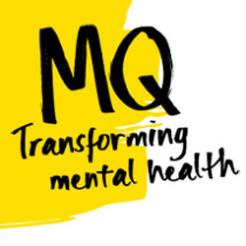A new charity, backed by a £20m pledge from the Wellcome Trust, is aiming to do for mental health research what Cancer Research UK has done for cancer.
MQ has not yet launched to the public, but has set its sights on delivering transformative change in mental health research, from basic research to developing new and better treatments for mental illness, which affects one in four people in the UK.
Discussions about building a “mental health equivalent of Cancer Research UK” began in 2009 between Sir Mark Walport, former director of the Wellcome Trust, and Lord Dennis Stevenson, a mental health advocate, former chair of the HBOS and now chair of MQ. It opened its doors in January this year, with its chief executive, Cynthia Joyce, brought in from the US. The charity, while set up with an initial pledge from Wellcome, has a completely separate governance structure from the funder and is operating independently.
Speaking to civilsociety.co.uk, Joyce said that now is the right time for an organisation like MQ to take advantage of developments in science which, with additional funding and research, could lead to advances in mental health treatment.
“Our charge is to build a sustainable fundraising organisation that can make contributions to research in the field and the analogy is that we’d like to be like Cancer Research UK - except do it faster,” she said.
Joyce has already met with the leadership of other mental health organisations, who she said have been supportive of the entry of a new charity solely focused on research “from autism to schizophrenia and everything in between”.
“They have all been part of the dialogue about the need to have a champion for research in this community,” she said.
MQ is working with stakeholders to develop its research priorities and is building its fundraising infrastructure before launching to the public – which Joyce said was unlikely to happen before early 2014. Joyce has yet to recruit a head of fundraising, but said she expected the charity to be doing direct marketing to the public and to utilise new tools, such as social media.
She said this preparation would enable MQ to “work as a cohesive whole to tell the public about the gap in research funding”.
Given the work other mental health organisations have done on stigma, Joyce said there was still ground to be made on that front, but that MQ would be focusing on a positive message.
“We want to focus on hope for the future,” she said. “The more that we understand [mental illness], the less there is to be afraid of. That’s the opportunity that the research agenda presents to us.”
The charity, the website of which is joinmq.org, sees itself as a movement from the outset. As a new charity, Joyce said, MQ has a great opportunity. “We don’t have any baggage, so we can start with what people really want charities to be for them, which is to have realistic goals and to be doing something that is meaningful for us in our lives and for our kids,” she told civilsociety.co.uk.
As a result, when the charity does start fundraising, she expects to be doing a lot of reporting back to donors; “That’s got to be fundamental to what we do,” she said. “You should know what your money has done for you. That’s part of the new way to involve people in science and it’s happening at every level – from research planning to research investments.”









